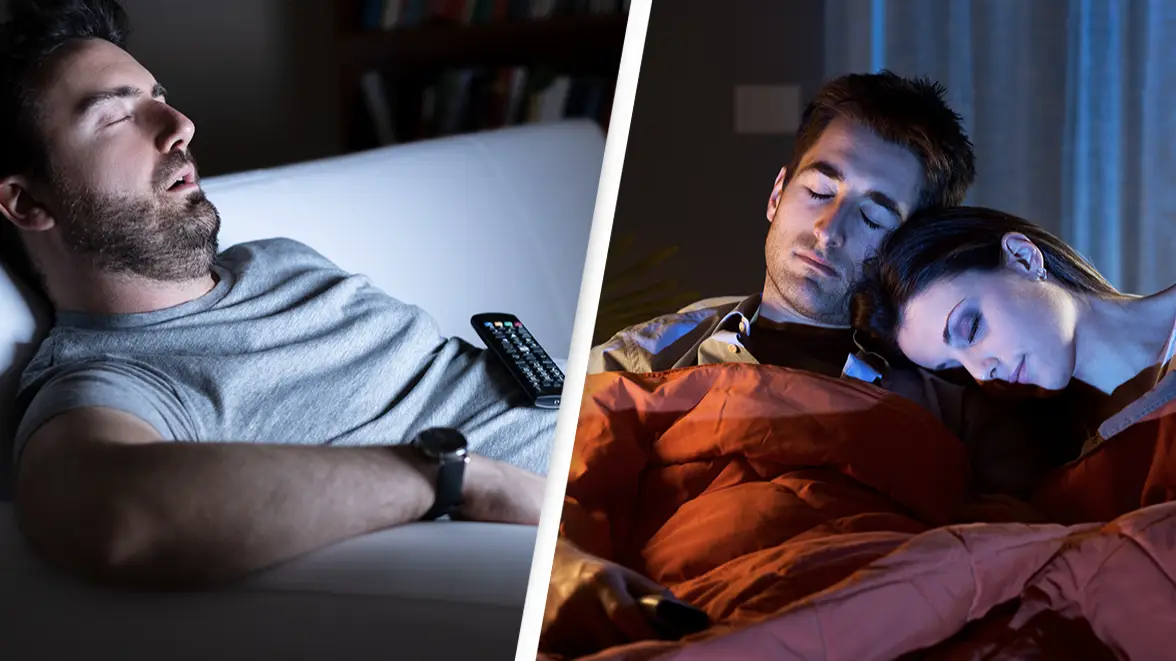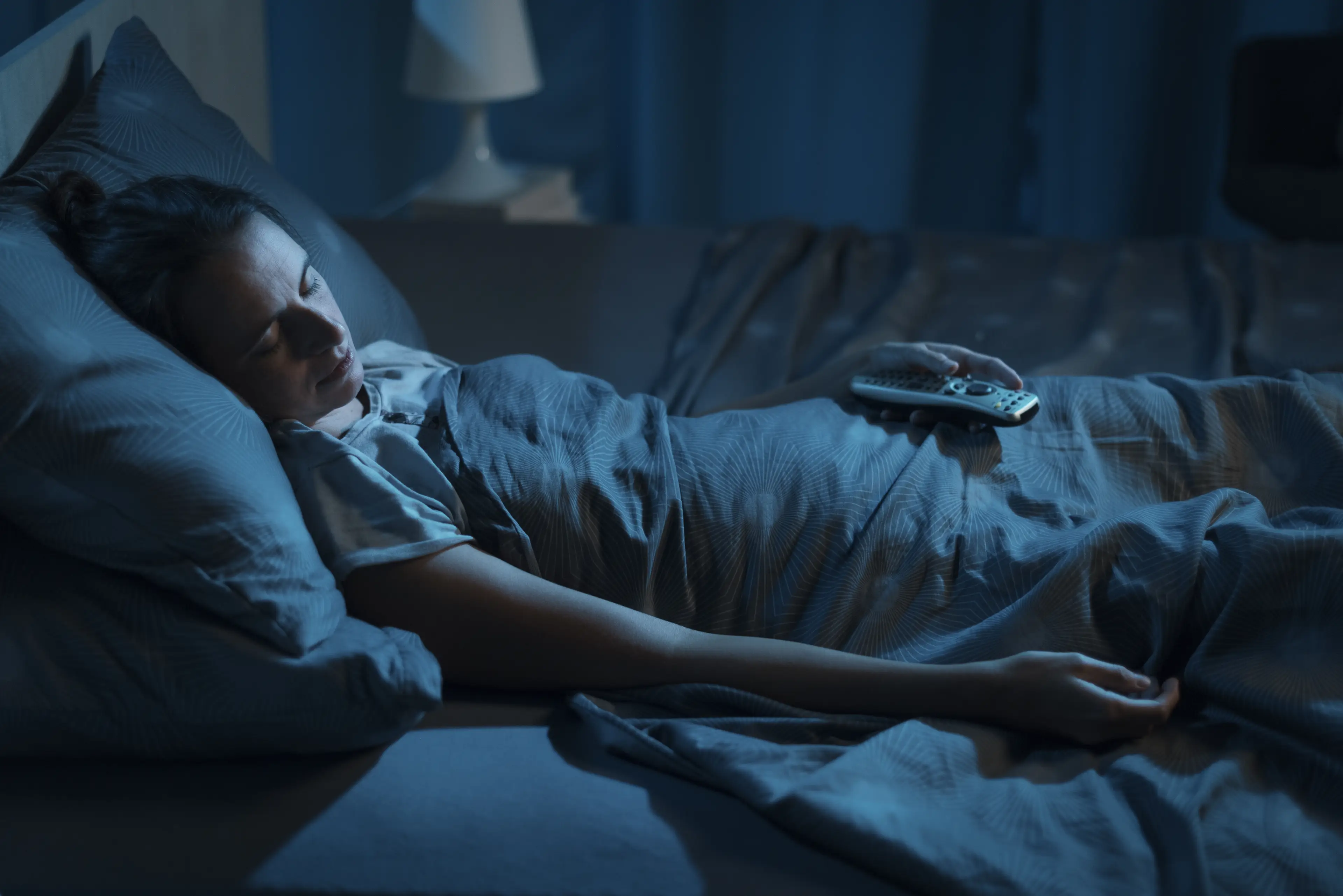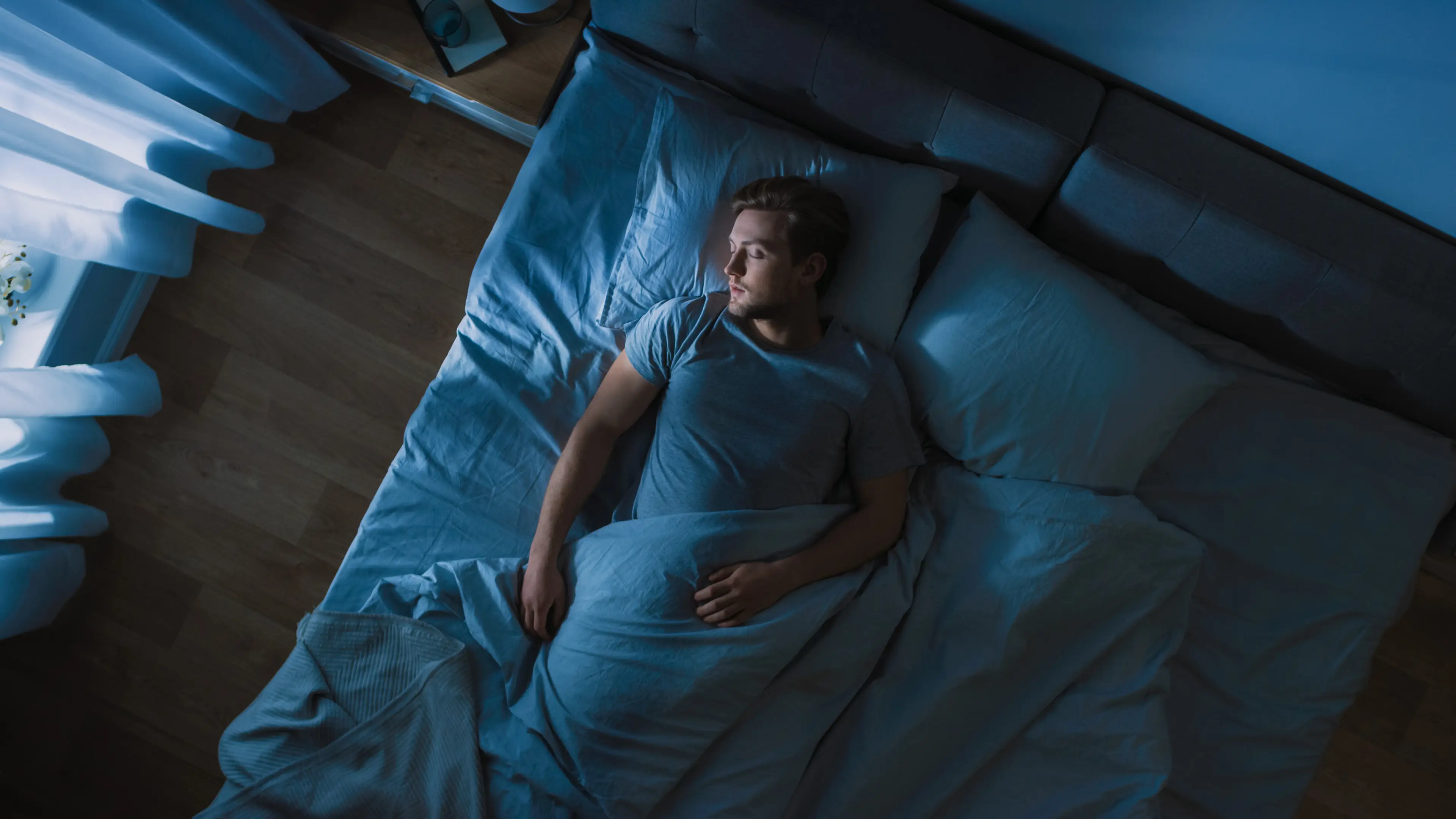
Sleeping with your TV switched on could potentially increase the risk of an early death, sleep experts have claimed.
While many of us are certainly guilty of falling asleep in front of the TV after a late-night Netflix binge, it turns out that this could be a lot more harmful for our health in the long run than realised.
This has been claimed in a recent study by the Northwestern University School of Medicine, which suggests that exposure to even the most moderate, ambient light could harm our cardiovascular functions during sleep - therefore increasing the risk of an earlier death.
Dr. Phyllis Zee, chief of sleep medicine at Northwestern University Feinberg School of Medicine, explained the findings of the study which compared the results of sleeping in ambient lighting to sleeping in a dimly lit room.
Advert
Healthy adults aged between 63 and 84 were observed and it was found that while sleeping for just one night surrounded by ambient light, such as a TV being turned on with the sound off, people's blood sugars and heart rates were raised.

Insulin resistance - when cells in your muscles, fat, and liver don’t respond well to insulin and can’t easily take up glucose from your blood - also occurred the morning after sleeping with the ambient light. This will eventually result in the pancreas producing more insulin, meaning blood sugar will be higher.
"The results from this study demonstrate that just a single night of exposure to moderate room lighting during sleep can impair glucose and cardiovascular regulation, which are risk factors for heart disease, diabetes and metabolic syndrome," Dr. Zee explained to Northwestern Now.
"It’s important for people to avoid or minimise the amount of light exposure during sleep."
It was also revealed in the study that exposure to any amount of light during sleep was 'correlated with the higher prevalence of diabetes, obesity and hypertension' among older men and women.
Study corresponding author Dr. Minjee Kim, assistant professor of neurology at Northwestern University Feinberg School of Medicine and a Northwestern Medicine physician, said: "Whether it be from one’s smartphone, leaving a TV on overnight or light pollution in a big city, we live among an abundant number of artificial sources of light that are available 24 hours of a day.

“Older adults already are at higher risk for diabetes and cardiovascular disease, so we wanted to see if there was a difference in frequencies of these diseases related to light exposure at night.”
But it's not time to panic just yet, as Dr. Zee offered some tips to reduce light during sleep, which include:
- Having the lights turned off. If you need to have a light on (which older adults may want for safety), make it a dim light that is closer to the floor.
- Colour is important - amber or a red/orange light is less stimulating for the brain. Try not to use white or blue light and keep it far away from the sleeping person.
- Use blackout shades or eye masks if you can’t control the outdoor light, or move your bed so the outdoor light isn’t shining on your face.
If you have a story you want to tell, send it to UNILAD via [email protected]
Topics: Health